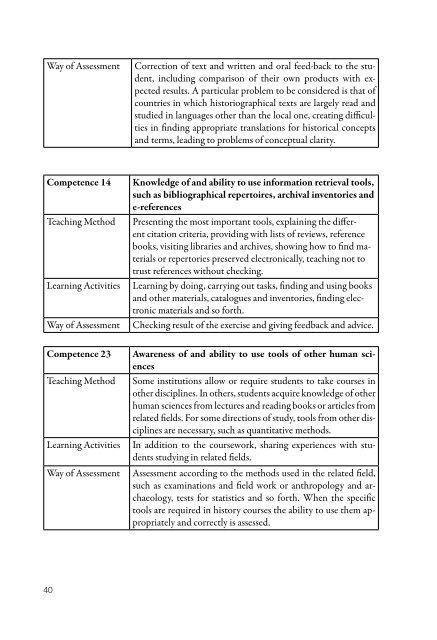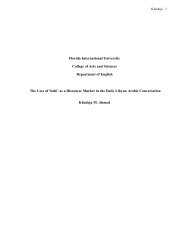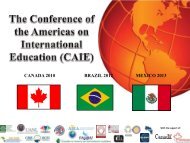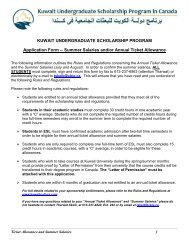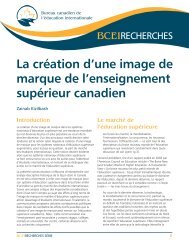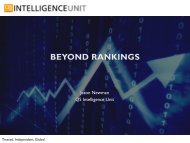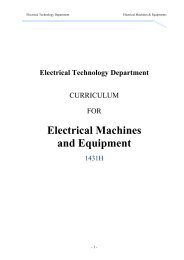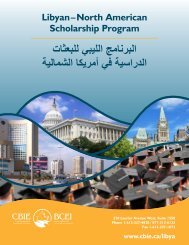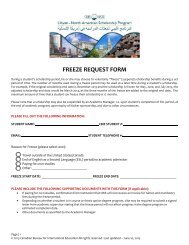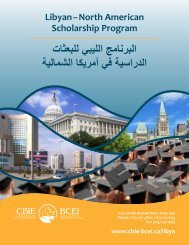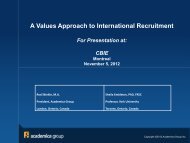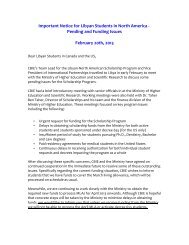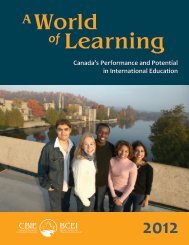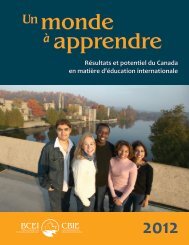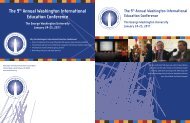Creating a New Historical Perspective: EU and the Wider World ...
Creating a New Historical Perspective: EU and the Wider World ...
Creating a New Historical Perspective: EU and the Wider World ...
You also want an ePaper? Increase the reach of your titles
YUMPU automatically turns print PDFs into web optimized ePapers that Google loves.
Way of Assessment<br />
Correction of text <strong>and</strong> written <strong>and</strong> oral feed-back to <strong>the</strong> student,<br />
including comparison of <strong>the</strong>ir own products with expected<br />
results. A particular problem to be considered is that of<br />
countries in which historiographical texts are largely read <strong>and</strong><br />
studied in languages o<strong>the</strong>r than <strong>the</strong> local one, creating difficulties<br />
in finding appropriate translations for historical concepts<br />
<strong>and</strong> terms, leading to problems of conceptual clarity.<br />
Competence 14<br />
Teaching Method<br />
Learning Activities<br />
Way of Assessment<br />
Knowledge of <strong>and</strong> ability to use information retrieval tools,<br />
such as bibliographical repertoires, archival inventories <strong>and</strong><br />
e-references<br />
Presenting <strong>the</strong> most important tools, explaining <strong>the</strong> different<br />
citation criteria, providing with lists of reviews, reference<br />
books, visiting libraries <strong>and</strong> archives, showing how to find materials<br />
or repertories preserved electronically, teaching not to<br />
trust references without checking.<br />
Learning by doing, carrying out tasks, finding <strong>and</strong> using books<br />
<strong>and</strong> o<strong>the</strong>r materials, catalogues <strong>and</strong> inventories, finding electronic<br />
materials <strong>and</strong> so forth.<br />
Checking result of <strong>the</strong> exercise <strong>and</strong> giving feedback <strong>and</strong> advice.<br />
Competence 23<br />
Teaching Method<br />
Learning Activities<br />
Way of Assessment<br />
Awareness of <strong>and</strong> ability to use tools of o<strong>the</strong>r human sciences<br />
Some institutions allow or require students to take courses in<br />
o<strong>the</strong>r disciplines. In o<strong>the</strong>rs, students acquire knowledge of o<strong>the</strong>r<br />
human sciences from lectures <strong>and</strong> reading books or articles from<br />
related fields. For some directions of study, tools from o<strong>the</strong>r disciplines<br />
are necessary, such as quantitative methods.<br />
In addition to <strong>the</strong> coursework, sharing experiences with students<br />
studying in related fields.<br />
Assessment according to <strong>the</strong> methods used in <strong>the</strong> related field,<br />
such as examinations <strong>and</strong> field work or anthropology <strong>and</strong> archaeology,<br />
tests for statistics <strong>and</strong> so forth. When <strong>the</strong> specific<br />
tools are required in history courses <strong>the</strong> ability to use <strong>the</strong>m appropriately<br />
<strong>and</strong> correctly is assessed.<br />
40


